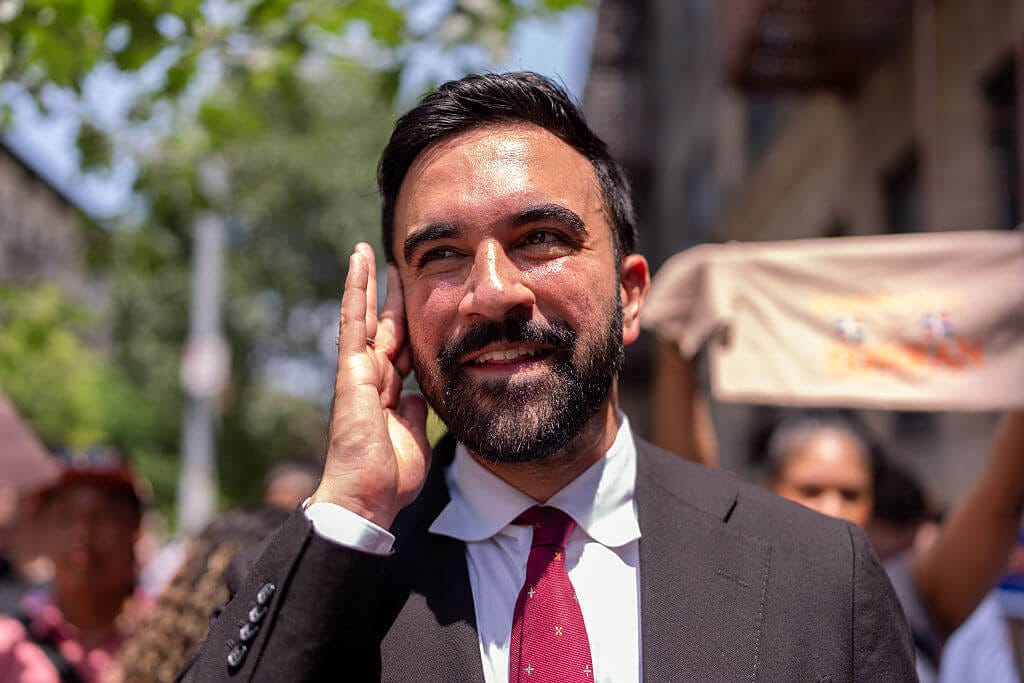The Race the Media Tried to Rig
Zohran Mamdani didn’t just beat Andrew Cuomo. He beat the illusion that elite media, billionaire PACs, and disgraced party elders still get to decide what’s electable in New York.
The first-round returns weren’t even final when Andrew Cuomo walked on stage and did something no one expected: he conceded.
The former governor — flanked by his daughters, drowned in $25 million of donor money, and backed by every establishment lever that mattered — admitted defeat to a 33-year-old socialist from Queens.
“Tonight is his night,” Cuomo said of Zohran Mamdani. “He deserved it.”
The crowd at Carpenters Union Hall was stunned—not because they had believed in Cuomo, but because they had believed in the system—in the polls, in the Post, in the ads, in the rules.
And suddenly, all of it had cracked. It wasn’t supposed to go this way.
The elite consensus had already been written. Cuomo would return, Mamdani would implode, and the machine would roll on.
Cuomo had the name, the money, and the media narrative. Mamdani had TikTok videos and a “radical” rent freeze.
But underneath that surface confidence lived a more profound fear. The kind of fear that animates every desperate institution when it senses its power slipping.
What if the voters don’t listen this time?
That fear explains the volume and venom of the anti-Mamdani campaign. The wall-to-wall editorials about “freebies” and “Israel hate.” The sudden reverence for Cuomo’s record, from the same outlets that had run him out of office in disgrace four years earlier. The Fix the City super PAC, flush with Bloomberg money, blanketing the airwaves with warnings about socialism.
They weren’t trying to inform. They were trying to discipline.
And the discipline failed.
To understand why this race mattered — and why elite media reacted the way it did — you have to understand what was being threatened.
Start with power consolidation.
Cuomo represented a return to a familiar operating system: wealthy donors, technocratic advisors, real estate developers, and the performance of competence.
A politics where the people in charge don’t like the public, but know how to control it.
That’s why Cuomo skipped most of the campaign trail. He didn’t need to talk to voters. He had been told, repeatedly, that he didn’t need to. The polls showed him 40 points up. The media was already writing Mamdani off as unserious, untested, and unelectable. There was no real race, until there was.
Next, look at media psychology. Most elite outlets didn’t just report on Cuomo’s comeback. They needed it. Because if Mamdani could win the mayoralty, it would expose how little influence they actually have.
This is the quiet pact between prestige media and political machines: they don’t make the final decision, but they make sure the public only hears from the “credible” options. And that credibility is often just code for class comfort. Cuomo, despite his scandals, was someone you could imagine at Davos. Mamdani, with his free bus rides and history of criticizing Israel, was not.
Which brings us to disciplinary incentives. Young journalists — the ones writing for the New York Times, the Atlantic, or MSNBC — don’t just absorb editorial lines. They absorb survival logic. They know where the prestige pipelines are. They know which opinions get elevated and which get you labeled as unserious, unprofessional, or antisemitic.
So they enforce the consensus through careerism. It’s a survival mechanism.
Mamdani’s entire campaign existed outside that structure. No major endorsements from media darlings. No deference to institutional Democrats. Just direct-to-voter messaging, meme-friendly policies, and a walking tour of Manhattan with Brad Lander.
And it worked.
The machine, built to create inevitability, couldn’t hold.
How did the most disciplined, best-funded, institutionally backed candidate — a former three-term governor — lose to a first-term socialist assemblyman?
The answer lives in a contradiction no one wants to admit: the more power elite institutions try to exert, the more obvious their irrelevance becomes.
Cuomo’s team spent millions. They launched a last-minute field operation. They blasted voters with slickly produced attack ads. And in doing so, they revealed just how empty their coalition was. You can’t build a winning campaign on nostalgia, donors, and disdain.
But Mamdani’s win isn’t a clean victory either. It raises questions that aren’t easy to answer: What happens when the left takes power without institutional support? Can Mamdani govern a city when the unions, the media, and the business elite are all sharpening their knives? Will the same outlets that ignored him now spend the next four years trying to destroy him?
In other words: even if you win the game, what if the refs still hate you?
Zohran Mamdani didn’t just beat Andrew Cuomo. He beat the idea that someone like him isn’t allowed to try.
That’s the story here — not just the upset, but the unraveling. The end of the illusion that prestige still confers power, that endorsements still move voters, that media gatekeepers can still decide who’s serious and who’s not.
And if you’re paying attention, you can see something new taking shape.





